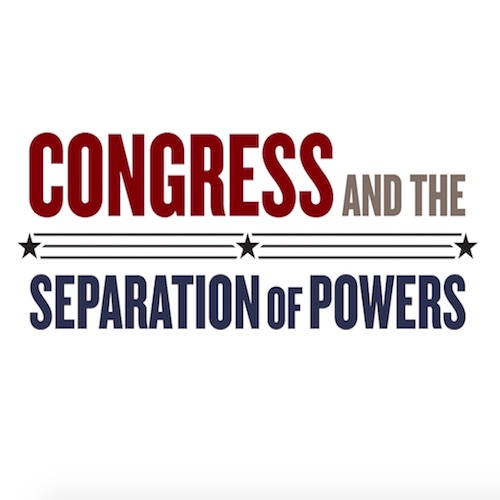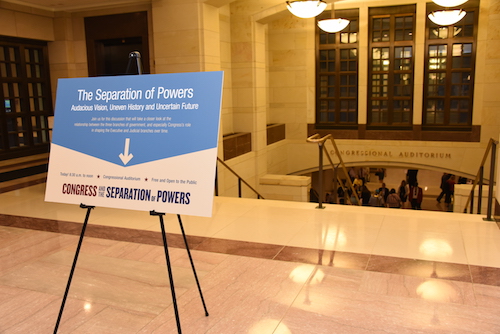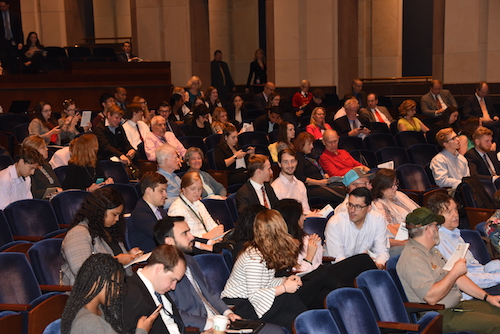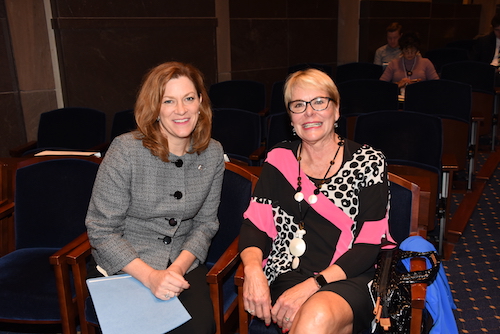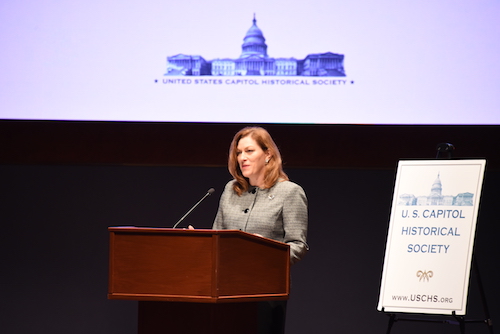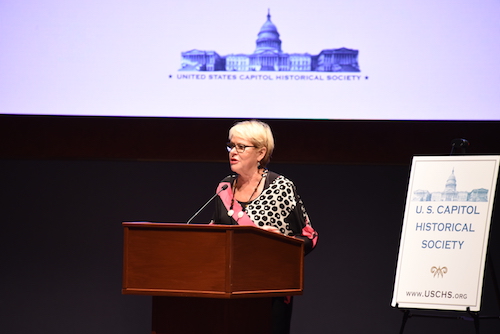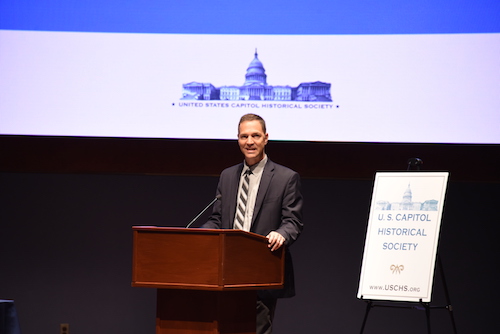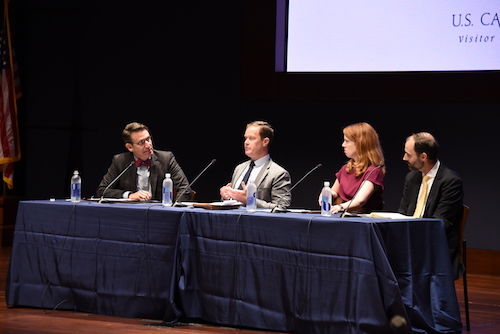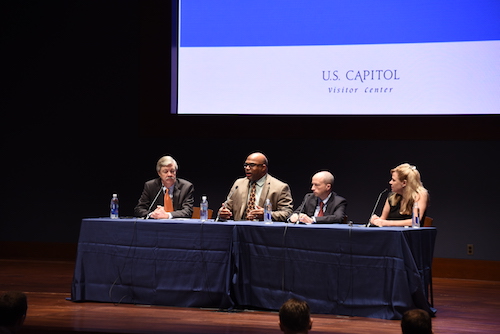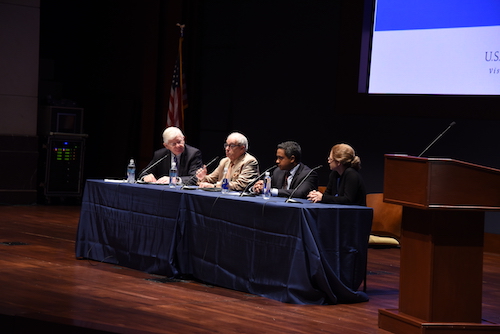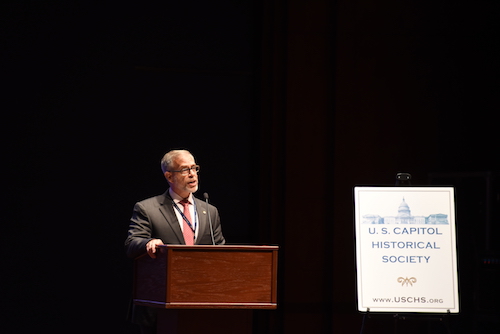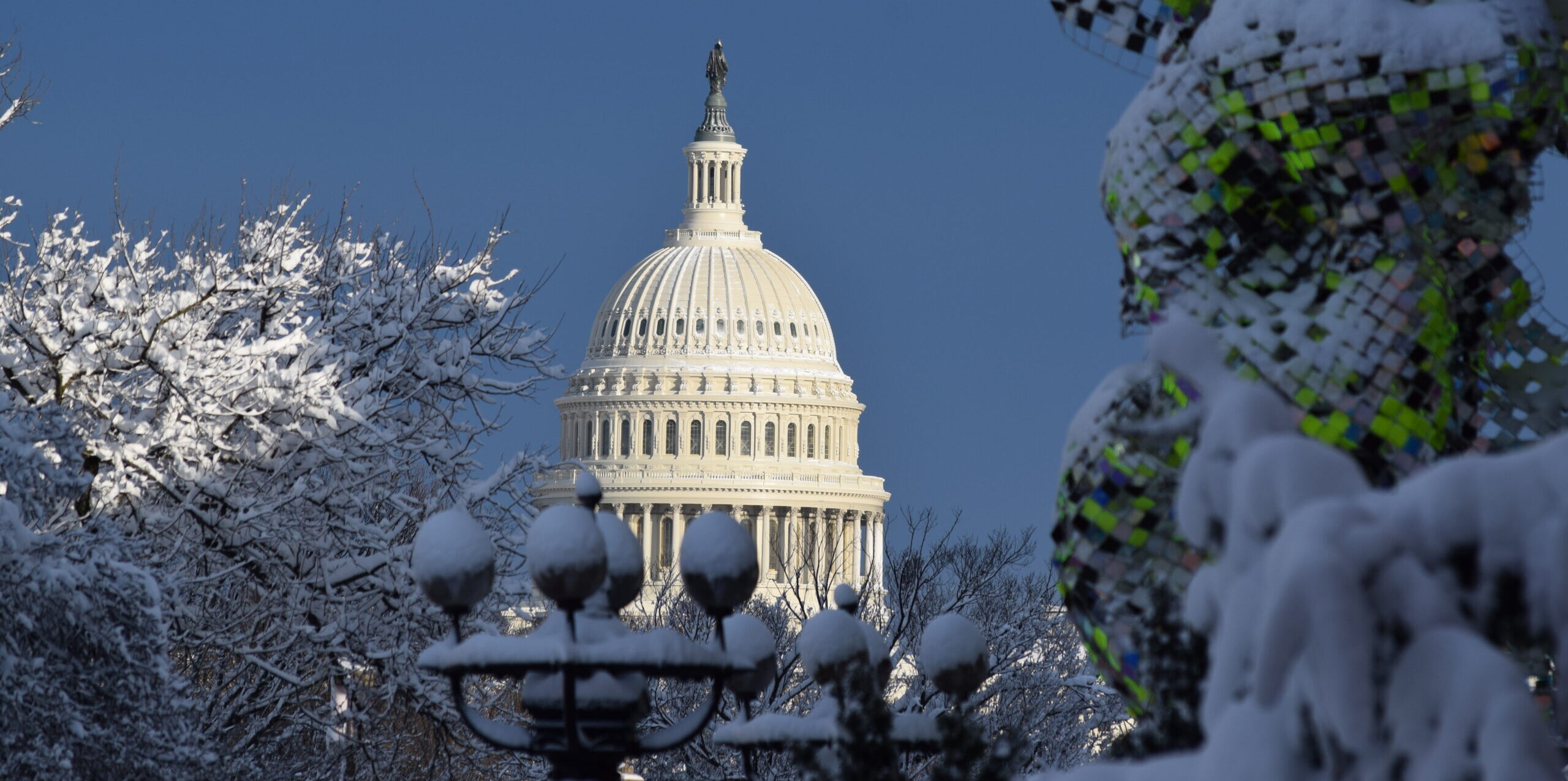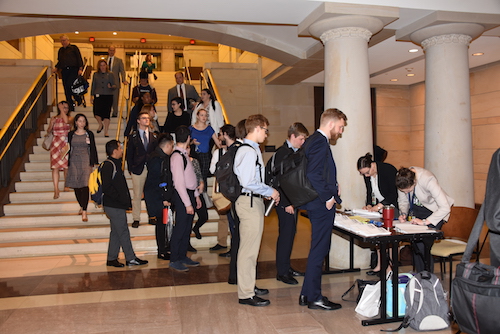
On Tuesday, September 25th, 2018, the United States Capitol Historical Society in partnership with the U.S. Capitol Visitor Center presented “Congress and the Separation of Powers: Audacious Vision, Uneven History, and Uncertain Future,” a forum organized by the Center for Congressional and Presidential Studies at American University. The panel discussions brought together an ideologically diverse group of academics and experts to take a closer look at the relationship between the three branches of government, and in particular the role of the Congress in shaping the Executive and Judicial branches over time. Nearly 200 people attended the day’s discussions.
The program opened with remarks from Beth Plemmons, CEO of the U.S. Capitol Visitor Center, which noted the related exhibit currently on display in the center’s Exhibition Hall and celebrated the growing relationship between the center and the U.S. Capitol Historical Society. Connie Tipton, Vice Chair of the USCHS Board of Trustees, then gave remarks expressing the organization’s eagerness to help organize this important forum, noting that “no principle of our constitutional form of government has been more debated, and no prospect of its future success is more fraught with challenges than the separation of powers.” Dr. David Barker, Director of the Center for Congressional and Presidential Studies, served as the event’s emcee and remarked that the constitutional separation of powers fulfilled James Madison’s vision for “ambition checking ambition.”
The first panel, “Audacious Vision: Why a Separation of Powers,” was moderated by Dr. John Haskell, who is the Director of the John W. Kluge Center at the Library of Congress. The panel featured: Gene Healy, Vice President at the Cato Institute; Dr. Alison LaCroix, Robert Newton Reid Professor of Law at the University of Chicago Law School; and Dr. James I. Wallner, a senior fellow at the R Street Institute. The panelists discussed concepts of “productive friction” and how the Framers of the Constitution — James Madison in particular — viewed the inherent conflict between and within the branches of the Federal Government as an asset rather than a liability.
The second panel, “Uneven History: Separation of Powers and the Struggle for Equal Rights,” was moderated by Ron Elving, who is Senior Editor and Correspondent on the Washington Desk for NPR News. The panel featured: Jesse J. Holland, a Race & Ethnicity reporter for The Associated Press; Dr. Yuval Levin, Vice President and Hertog Fellow at the Ethics and Public Policy Center; and Victoria Frances Nourse, a professor of law at the Georgetown University Law Center. The panelists debated how the separation of powers shaped the evolution of civil rights, and in particular how the courts came to be the primary decision-making body.
The third and final panel, “Uncertain Future: Party Polarization and Legislative-Executive Balance,” was moderated by Dr. James A. Thurber, who is a distinguished Professor of Government at American University in Washington, D.C. The panel featured: Dr. Sarah Binder, a senior fellow in Governance Studies at the Brookings Institution; Dr. Norman Ornstein, a resident scholar at the American Enterprise Institute; and Manu Raju, a senior congressional correspondent at CNN. The panelists discussed how party polarization has shaped the separation — and balance — of powers between the legislative and executive branches of the federal government.
C-SPAN was on hand to record the event, and full videos of the panels can be found at the following links:
Audacious Vision: Why a Separation of Powers
Uneven History: Separation of Powers and the Struggle for Equal Rights
Uncertain Future: Party Polarization and Legislative-Executive Balance

